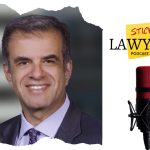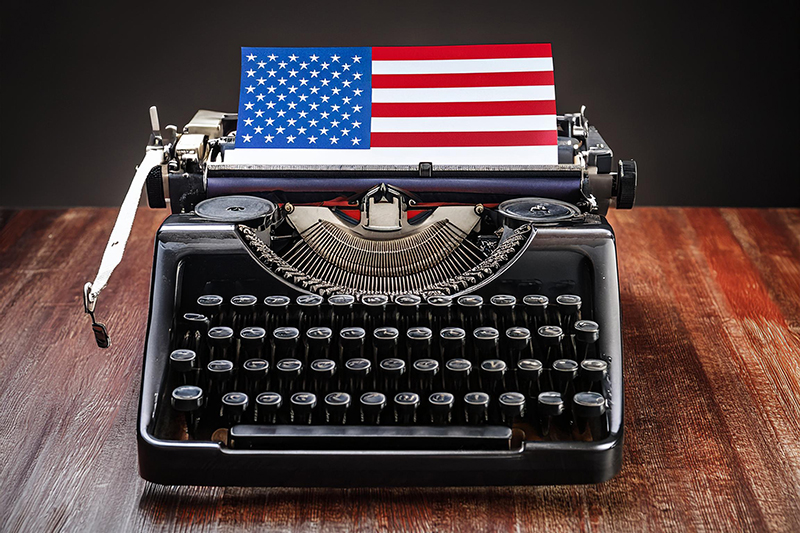Branding
When Your Political Response Becomes Your Law Firm’s Brand
By John Reed | 05.20.2025
Like other parts of society, law firms have often found themselves on one side of a political issue or spectrum because of the nature and scope of their practices. Consider a plaintiff personal injury firm opposed to tort reform, consistent with more Democratic or liberal perspectives, or a firm that defends gun owners whose views tend to align with Republican or conservative positions on Second Amendment rights.
 When firms focus on particular issues or services, they make an affirmative choice to do so. Is there a profit motive? You bet. Niches, they say, make riches, and specialization can be a competitive advantage. That’s a proper legal marketplace driven by supply and demand. If we assume attorneys willingly choose their practices, warts and all, and are committed to principled advocacy, we should respect those decisions, even if we dislike the cause or the clientele.
When firms focus on particular issues or services, they make an affirmative choice to do so. Is there a profit motive? You bet. Niches, they say, make riches, and specialization can be a competitive advantage. That’s a proper legal marketplace driven by supply and demand. If we assume attorneys willingly choose their practices, warts and all, and are committed to principled advocacy, we should respect those decisions, even if we dislike the cause or the clientele.
But we’ve entered a new landscape. Today, we have a president who actively targets, punishes, and seeks retribution against lawyers and law firms for pursuing or defending cases and representing clients he dislikes.
Before I go further, know that I’m doing my best to discuss this issue objectively. We live in a politically divided country and world, and I have strong feelings about current developments. I won’t hide from my opinions if asked, but the purpose here is to explore dilemmas and predicaments that a growing number of law firms will encounter and that will impact their brands.
Judged by One’s Action, Reaction, or Executive Action
The most striking example of the administration’s revenge campaign is the series of executive actions imposing sanctions on global law firms, including suspension of security clearances and access to federal buildings (impeding their ability to represent high-level government employees) and termination of government contracts with companies the law firms represent (punishing the firms by threatening their clients).
Perkins Coie, the first BigLaw name the president targeted, opted to fight. It filed a lawsuit challenging the executive order, arguing that the president’s order attacked the rule of law and every American’s right to counsel. More than 500 law firms nationwide signed an amicus brief in support. On May 2, 2025, a federal judge permanently blocked the order, calling it “unconstitutional retaliation” and a politically motivated act.
Next in the president’s crosshairs was Paul, Weiss, Rifkind, Wharton & Garrison, accused of the same allegedly egregious conduct and threatened with the same repercussions. The firm opted to negotiate a deal with the White House; rather than face sanctions, Paul, Weiss promised $40 million in free legal assistance to the president’s conservative causes. Eight other BigLaw firms on the receiving end of executive actions— Kirkland & Ellis, Latham & Watkins, Skadden, Milbank, Willkie, Simpson Thacher, A&O Shearman, and Cadwalader—followed suit. In total, “The Nine” agreed to provide nearly $1 billion in “pro bono” services to organizations seeking to advance the administration’s goals.
Despite our respective political affiliations, we should all recognize that each of the president’s executive actions is an assault on the American legal system itself. It has never been the role of government to vilify lawyers and firms for zealous representation and advocacy that fall within ethical guidelines and rules of professional responsibility.
In All Fairness
Regardless of my view of The Nine’s capitulation, I understand their predicament and the short-term factors they had to weigh. They risked losing money and clients (Paul, Weiss’s chairman called it an existential threat), feared the administration would target their clients, and opted to shield their attorneys, professional staff, and employees from economic harm.
Perkins Coie, WilmerHale, and Susman Godfrey chose to stand their ground against the long-term ramifications. They decided to fight against what they viewed as inappropriate pressure and accepted the consequences of taking on powerful political forces.
These law firms have sophisticated marketing operations with people who carefully their brands and public reputations by affirmative choices – what law to practice, what ethos to promote, which clients to counsel, which markets to serve, what communities to support, etc. The president’s orders forced them to make reactive, defensive choices. Though you won’t find a chapter on that in most marketing textbooks, it’s a lesson many lawyers will have to learn.
Law Firm Branding in the Age of Trump
Look, no one wants to be under any president’s thumb or microscope. Large law firms targeted by the administration had tough decisions to make.
- “Will existing clients stay or leave based on our political position?”
- “Will prospective clients be attracted to or deterred by our political stance?”
- “Will lawyers and professional staff depart if they can afford to?”
- “Will promising candidates pursue employment here or look elsewhere?”
Branding is not merely an internal exercise. While law firms can try to craft and control a brand, image, and messaging strategy, public perception ultimately determines brand reality. If there’s dissonance between how a firm presents itself and how it’s perceived, trust erodes. A brand is fundamentally a promise; broken promises damage relationships and trustworthiness.
Viewing the administration’s actions as exclusively a BigLaw problem would be a mistake. Law firms across the spectrum, from solo practitioners to multinational practices, may soon face similar choices about their political branding and livelihoods (the Department of Homeland Security recently ordered three immigration attorneys— one naturalized U.S. citizen in Utah, one naturalized citizen in Massachusetts, and a U.S.-born citizen in Massachusetts—to self-deport). Some will make these choices proactively; others will have choices made for them through client, staff, or public reaction.
As the legal profession grapples with unprecedented political intrusion, each firm must carefully consider the immediate business implications of its stances and responses and the long-term impact on its brand identity. In today’s polarized environment, neutrality itself may become impossible to maintain. The question becomes not whether your firm will adopt a political stance, but which stance it will be known for—by choice or by circumstance.






